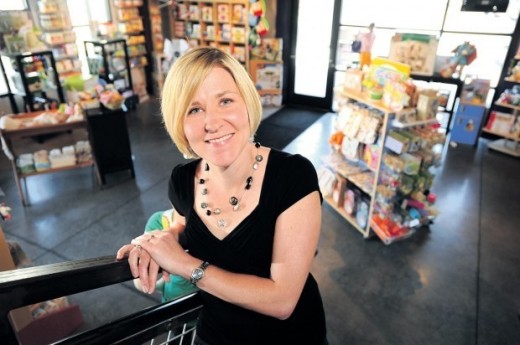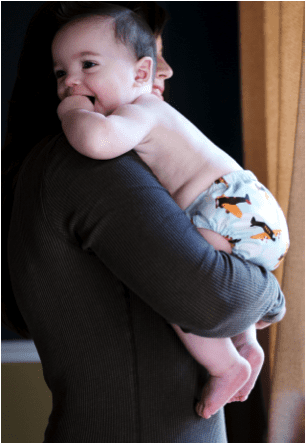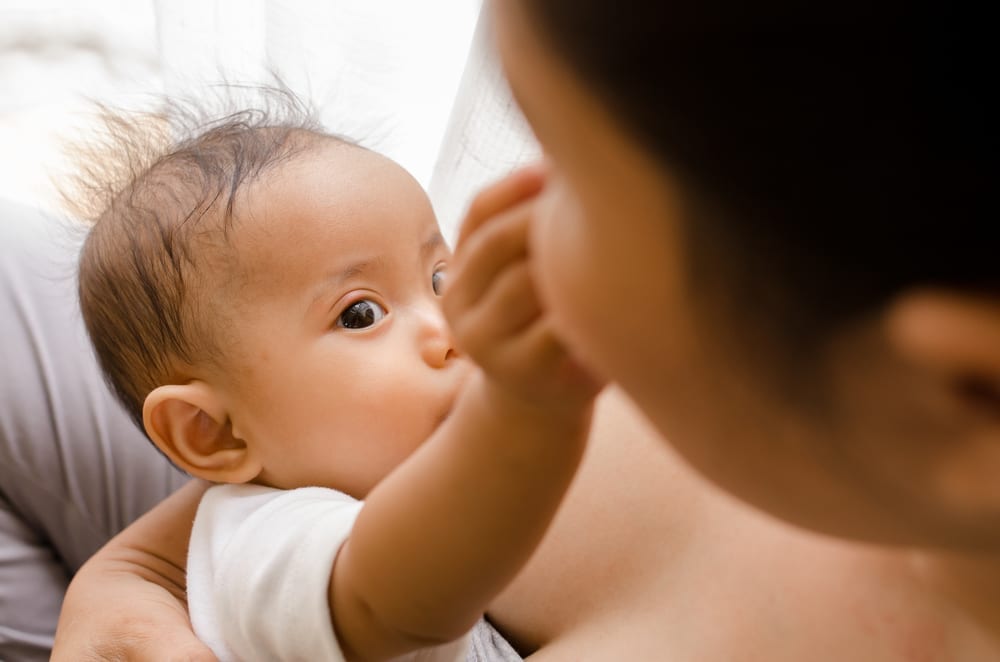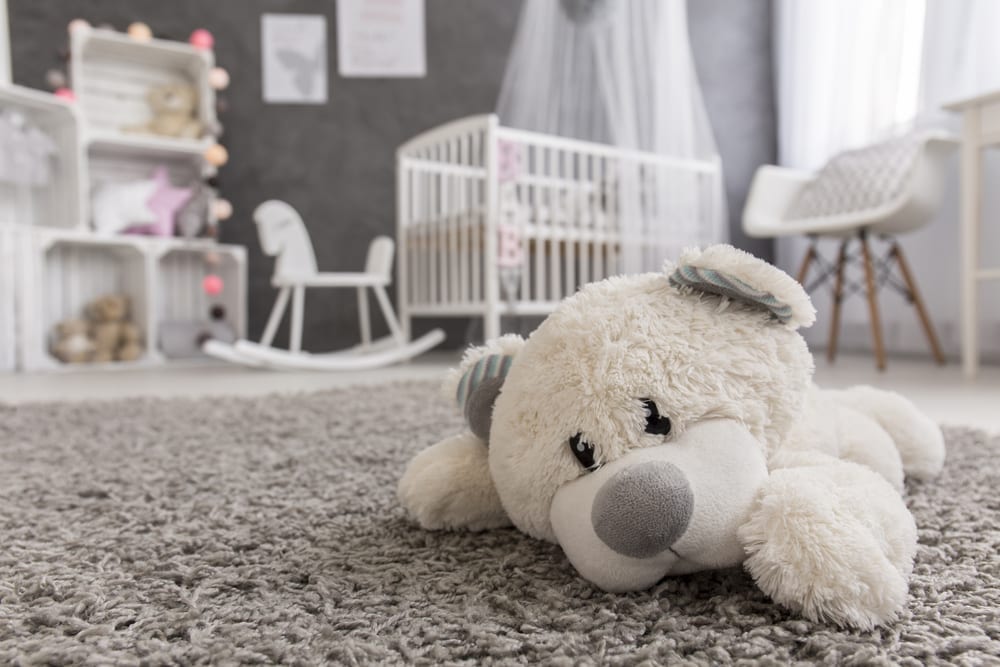Today’s guest post is brought to us by Kim Ormsby. Kim is the owner ofThe Natural Baby Company. The Natural Baby Company’s brands include: GroVia, Tiny Bubbles, and Magic Stick. Each product was designed out of necessity and innovation.
What a great person to have as a guest here on Modern Day Moms covering the topic of Cloth Diapering. She is here to share her advice, tips and hopefully help you out in our cloth diapering journey. Take it away, Kim!
Last week, I shared with you some basic Cloth Diapering know-how. I explained the difference between fitted, all in one, one size and more. You can view that post here. Now, I’d like to make sure you are set to succeed! Here are the top 6 mistakes made when cloth diapering today.
Top 6 Cloth Diapering Mistakes
1) Underestimating Stash Size
I cannot stress enough how important stash size is. Whether using sized or one size diapers you MUST have enough diapers to not only last between washings, but also rotate your stash. With a one size diapering system we recommend enough diapers for 38-50 CHANGES. Even an AI2 system like GroVia requires 14 Shells, 38 Soaker pads for full time diapering. Any less than this means excessive wear and tear on your diapers that are being used on a daily basis. There is not a single other piece of clothing that gets used and washed as much as a cloth diaper, yet we expect them to last through many months or even years of use. Remember, the less often you have to wash your diapers and covers, the longer they will last. If you choose to diaper with a smaller stash, plan on replacing your diapers every 6-9 months. Don’t expect one-size diapers (or sized diapers!) to last 2 years if you only have 10-15 in rotation!
2) Extreme Wash Routines
You’ve just invested a large amount of money in your baby’s diaper stash. Protect your investment by caring for them properly. I cannot count the number of customers who have destroyed their stash by “sanitizing” their diapers, washing them in bleach (or other whiteners), or simply not following the care labels on their diapers.
First step is to read the care labels on your diapers, just as you would any of your own clothing. If it says to wash on warm…wash on warm! A recommended hot wash by the manufacturer does NOT mean the “sanitize” cycle on your machine. Do not put additives in your wash cycles (even the natural ones like vinegar and baking soda). They are unnecessary and can be harmful to both your diapers and your baby’s skin. Lastly, and probably most importantly, USE ENOUGH DETERGENT. The detergent and agitation of your wash cycle are what cleans your diapers. 1 Teaspoon – 2 tablespoons is simply NOT enough detergent to get your diapers clean. If your diapers smell….use more detergent! Very rarely is “buildup” the reason for smelly diapers.
3) Not Changing Often Enough
Cloth diapers are wonderful for many reasons. They are eco-friendly, healthy, and cost effective when compared to their disposable counterparts. Cloth diapers do not contain SAP (super absorbent polymer) gel, which is the component of disposable diapers that make them trim, yet so absorbent. The average disposable diaper can hold 10 pees before being changed. Whether you use disposables or cloth, your baby should be changed every 2 hours during the day. This keeps baby’s skin healthy and keeps those rare leaks at bay! When customers ask “How many hours can I leave my baby in your diaper before changing?” the answer is, “As soon as you notice they’re wet!!”.
4) Washing Once a Week (or less)
The quickest way to ruin a diaper is to leave it soiled in a closed, dark, warm pail for several days before washing it. This environment is prime breeding grounds for fungi, bacteria, and critters (yes, I’ve even heard maggot stories). Treat your diapers as you would your own lingerie. Soiled diapers should be washed every 2 days according to manufacturer’s instructions. If you have stains, hang them in the sun. Mother Nature knows what she’s doing. The sun naturally bleaches out stains, and kills bacteria and yeast. Best of all it doesn’t cost a dime and is chemical free!
5) Synthetics and Natural Fiber Diapers are DIFFERENT!
There are advantages and disadvantages to natural fiber diapers. Natural fibers and organics are wonderful for absorbency and purity. Cotton, hemp, and bamboo are among the most popular. They have a lower environmental impact in their milling process and biodegrade rather well. Natural fibers are milled with fewer or no chemicals, and feel great against baby’s tender skin. They do however wear differently and are not as tolerant of extreme washing conditions as polyester diapers can be. Natural fiber diapers will wear much the same as your favorite t-shirt or sweatshirt. Polyester and microfiber diapers won’t stain as easily, tolerates high temp washing, soaks, bleaching, and have a longer life span. If you are a fan of a complex wash routine, sanitize cycles, bleach and soaking skip the natural fibers and go with synthetic.
6) One Size Does Not Mean…. Lasts Forever, Fits Everyone.
In the past 3-4 years we’ve seen a boom of one-size diapers come onto the market. One-size diapers have many advantages as they fit a broad size range and can often eliminate the need to buy multiple sizes of diapers. With this have come many unrealistic expectations. One-size diapers are often made of the same materials as their sized counterparts. One-size diapers are not able to withstand any more wear and laundering than sized diapers. If you diaper full time with a one-size system and want them to last until potty learning, buy enough diapers (38-45 minimum). Babies come in different shapes and sizes and not every diaper, one size or not, is guaranteed to fit. Try one or two diapers before investing in an entire stash!
Meet Kim Ormsby

After receiving a BS in Biology + Chemistry from Jamestown College, I spent four years working with Qwest Communication. In 2003, with a growing family, I ventured out on my own and created Montana’s Diaper Store, an online cloth diaper retail site functioning out of my home laundry room. This move into entrepreneurship gave me the opportunity to protect the health of my family with improved products, to ensure a family-friendly work environment, and to guarantee that my children would be exposed to a business that they could learn from, be proud of, and benefit from. In just a few years, Montana’s Diaper Store developed into The Natural Baby Company, a retailer, manufacturer, distributor, and parent company to in-house cloth diaper brand, GroVia. Today, The Natural Baby Company and GroVia are helping unite eco-responsibility and function in homes across the globe, all because we offer a simple way to nurture baby, naturally.
Contributor
We have guest bloggers on our site often. It's a great way for others to share their ideas and opinions with us all. If you're interested in contributing in some way, feel free to contact us and we would be happy to chat with you.
You May Also Like
Adventures of Cloth Diapering: Step 1- PREPARING
My Breastfeeding Truth
4 Items to Start Your Nursery Design
Leave a Comment Cancel reply
Pingback: Great Resources for Cloth Diapering | Kinda Crunchy on January 28, 2012
Pingback: The Great Cloth Diapering UpStash of 2013 | Kinda Crunchy on January 28, 2012




2 COMMENTS